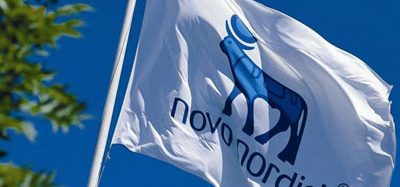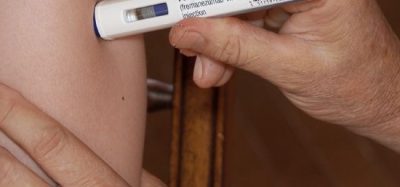Call for greater investment and innovation from pharma to address RSV
Posted: 1 October 2025 | Catherine Eckford (European Pharmaceutical Review) | No comments yet
Despite progress from AstraZeneca, Sanofi, Merck & Co, GSK and Pfizer, analysts say effective respiratory syncytial virus treatments are still needed.


This month will mark the start of the respiratory syncytial virus (RSV) season and analysts say the common infection stills lacks sufficient, effective treatments.
Even though RSV treatment “has accelerated at an unprecedented pace, with several prophylactic therapies now available”, further progress is needed, according to Abigail Harris, Infectious Disease Analyst, GlobalData.
“While prevention is improving, effective treatment options are virtually non-existent. Patients who develop severe RSV continue to rely on supportive care, with the broad-spectrum antiviral ribavirin offering limited efficacy and significant safety and access challenges,” she said.
Yet Harris emphasised that “prophylactic mAbs and vaccines can only go so far and there is a strong unmet need for novel therapeutics”.
Obstacles to developing better antivirals include a lack of clinical efficacy and safety concerns in vulnerable populations such as infants and pregnant women, say GlobalData.
Progress in RSV treatments
“While prevention is improving, effective treatment options are virtually non-existent… prophylactic mAbs and vaccines can only go so far and there is a strong unmet need for novel therapeutics”
The analysts expect the US market for RSV drugs to be worth $2.7 billion in 2025, amid signs of progress in recent years, especially in the infant RSV market.
In 2023, the US Food and Drug Administration (FDA) approved monoclonal antibody (mAb) Beyfortus (nirsevimab-alip) for infants, a drug jointly developed by AstraZeneca and Sanofi.
Last year, a long-term follow up study showed evidence of the drug’s high efficacy in infant RSV. Hospitalisations reduced by 82 percent in infants under six months, compared to those who did not receive RSV therapy.
Notably this year, the FDA approved Merck & Co’s long-acting monoclonal antibody (mAb) Enflonsia (clesrovimab) for the infant market.
In the adult market, GSK’s Arexvy (respiratory syncytial virus vaccine, recombinant adjuvanted) and Pfizer’s Abrysvo (respiratory syncytial virus vaccine) were approved in 2023, and Moderna’s respiratory syncytial virus (RSV) mRNA vaccine (mRESVIA) in 2024.
June also saw Sanofi commit $1.6 billion to acquire the biotech Vicebio, supporting the advancement of next-generation vaccines for respiratory viruses. The deal intends to develop a combination vaccine candidate to immunise against both RSV and a human metapneumovirus (hMPV).
Harris concluded that the “industry must prioritise not only expanding access to prophylactics but also accelerating R&D into therapeutics to close this critical gap”.
Related topics
Clinical Development, Clinical Trials, Data Analysis, Drug Development, Industry Insight, Regulation & Legislation, Research & Development (R&D), Therapeutics, Vaccines, Viruses
Related organisations
Related drugs
Abrysvo, Arexvy, Beyfortus, Enflonsia (clesrovimab), monoclonal antibody, mResvia (Respiratory Syncytial Virus (RSV) mRNA vaccine), prophylactic vaccine, vaccines









